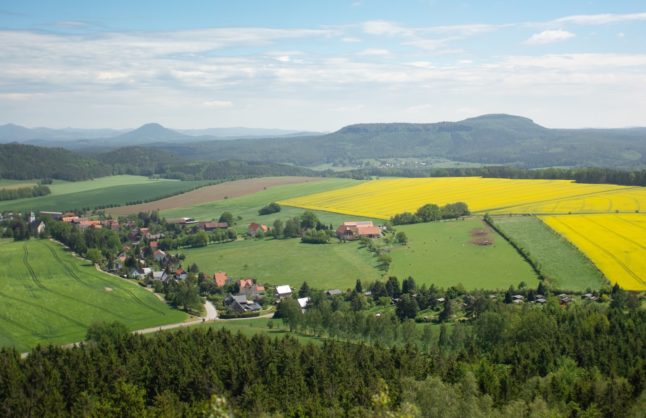Most people in Switzerland live in cities and immediate areas around them.
Unlike huge urban centres in many other countries, where there is a lot of visible crime and poverty, Swiss cities are generally safe, attractive, have a good infrastructure — including an excellent public transportation network — and offer many economic opportunities.
In fact, both Zurich and Geneva rank highly among world’s ‘most liveable’ cities in the 2022 Global Liveability Index.
Both cities got top scores across all categories, with highest marks given for heath care (100), followed by infrastructure (96.4), and stability (95).
READ MORE: Why are Geneva and Zurich high among world’s ‘most liveable’ cities?
Basel and Lausanne also scored highly in international surveys.
However, despite their appeal, a new trend is developing: more people are leaving the cities and moving to the countryside.
Why is this happening?
Blame it on the growing shortage of affordable housing and skyrocketing rents.
“The middle class can no longer afford to live in the city,” said Nicola Hilti, researcher at the University of Applied Sciences in St. Gallen. “This is particularly the case in Zurich, Zug, Geneva and Basel.”
READ MORE: Which parts of Switzerland are hardest hit by housing shortage
According to a report in the Sunday’s SonntagsZeitung, about 1 million tenants in Switzerland suffer the so-called ‘rent burden’ — which means they pay too much rent in relation to their income.
This combination of scarce housing and high rents is driving an increasing number of middle-class families out of the cities and into the countryside, where rents are, at least for now, lower.
This is especially the case when children arrive and the need for larger accommodations becomes more urgent. “This is when many middle-class families find themselves broke,” said Hilti, who interviewed many of the departing families for her study.
“They leave either for a cheaper area or completely out of town,” she added.
If this exodus continues, however, it could have a negative impact on the economy, experts say.
“Our cities thrive on diversity and interaction,” said urban sociologist Barbara Emmenegger. “If the middle class leaves, part of the economy will collapse. Shops and restaurants geared to this population group will disappear.”
And the shift toward the countryside will not benefit rural areas either.
“If people can no longer afford to live in the city and move to the countryside, road traffic is likely to explode,” she pointed out.
Also, rural regions may not provide cheaper housing for much longer.
“Switzerland is heading towards a housing shortage of unprecedented proportions,” said Fredy Hasenmaile, Credit Suisse’s real estate expert. “In urban centres, housing is already very scarce. The problem has not yet reached the countryside, but it is only a matter of time.”
How can this problem be resolved?
The most logical solution is to build more housing in and near urban centres and keep rents from soaring.
While elected officials recognise that the situation on the housing market is critical and are proposing various ways to alleviate the problem, nothing is happening at the present time in terms of concrete measures.
It is expected that the housing and rents will become the focus of some intense discussions in the parliament, possibly later this year.
In the meantime, the Swiss Tenants Association has been pushing elected officials to introduce rent control measures, so this issue is definitely on the political agenda.
READ MORE: How can Switzerland solve its housing shortage and curb rents?





 Please whitelist us to continue reading.
Please whitelist us to continue reading.
Member comments